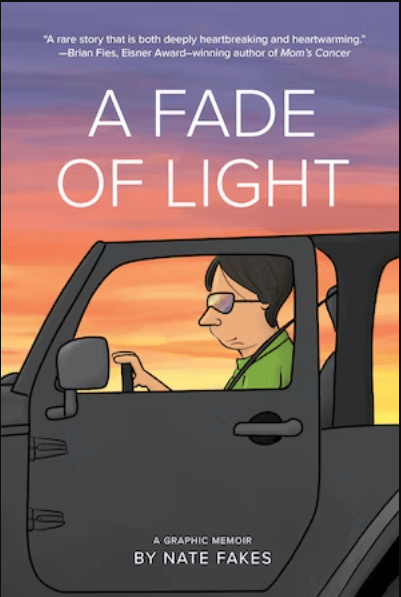CSotD: Will noone rid us of this meddlesome holiday?
Skip to comments
Arlo and Janis cut to the heart of the matter, though the fact is, we need to find a way to weasel out of Columbus Day entirely and not just its angst.
We don’t shift into reverse very easily. There are 27 amendments to the Constitution, and only one of them restricts, rather then enlarging, our rights. And a second one annuls that one.
Ditto with holidays. Once you add them, you have to do some fancy dancing to take one away, and up until 1971, Columbus Day had no more legal standing than Valentine’s Day or Halloween.
But it was approved in 1968 and became a holiday in ’71, which made official something a lot of people were already celebrating. For instance, New York made it a state holiday in 1907, so I grew up assuming we’d be out of school that day.
The proposal, a decade later, to make Martin Luther King Jr’s birthday a holiday got pushback at least superficially defined as objecting to the cost of another federal holiday, mostly having to pay people not to show up at work, though a few blockers like Jesse Helms at least had the decency to denounce MLK as a “socialist” instead of saying what they really had on their minds.
Perhaps it’s related to the reason Lincoln’s Birthday was never a federal holiday, and I suspect a map showing where Lincoln’s Birthday was not a state holiday would tilt significantly towards the South, and might include a few states where they were paying employees not to show up on Jeff Davis Day.
So the immediate solution appears to be to paper it over with posters saying “Indigenous People’s Day” or “Italian Heritage Day” or “This Holiday Under Repair.”

Rob Tornoe prefers the “Historical Correction Day” approach.
I’m a mix of Irish, Danish and Italian, so I’ve got three dogs in this fight and I’m not defending any of them.
Leif Erikson was certainly here hundreds of years before Columbus, but that doesn’t necessarily make him the first, just the first who left a credible record that could be verified.
Also, even going by the sagas, it was Barni Haroldsen who actually discovered the place. Erikson was the real estate developer who tried to market it, which didn’t work out but did leave physical traces for historians to ponder.
The Irish lay claim to an even earlier discovery by St. Brendan, known as Brendan the Navigator, and it’s possible that Irish sailors or monks or fishermen could get that far, though it would almost certainly be by accident which raises the question of how they’d get back again to tell anyone what they’d seen.
Plus, while the Norse traditions are pretty straightforward in describing a failed settlement attempt, the Irish epic is so full of fanciful discoveries as to render the whole thing a fairy tale, even if it contains some scintilla of fact under its Sinbad the Sailor narrative.
There are a variety of other nations, in Europe, Asia and Africa, with claims to have been first, but, assuming they got here, it was a touch-and-go landing.
Columbus properly gets credit for the “discovery” because Spain was the first nation to follow through, which was a result of improving technology more than anything else.
Besides, Erikson and his father had simply been trying to make money, not extend an empire. Imperialists are willing to invest more.
Whatever else is true in this world, nice guys don’t finish first, and, while it certainly sucks to be them, it’s not a surprise that Spain got here before the rest of Europe, because they wanted it most, and, besides, killing Jews and heretics was not enough. They needed some new people to exploit, enslave and eradicate.
Though even in those nasty, racist times, Columbus managed to inspire enough horror to draw both notice and prosecution for his genocidal policies, but he made enough money for the Crown that he escaped punishment.

Of course, that was then and this is now, and the Alhambra Decree was revoked in 1968. As noted in this Francis strip, the Church continues its rise to modern standards, though not so fast as to risk a case of the bends.

Though if we did want to punish Columbus, we could prop his eyelids open and make him watch videos of elementary school pageants.
I don’t know how many still do the construction-paper feathers and shoe buckles routine, but Greg Kearney notes a report that schools are not obeying a state law requiring Native American topics in the curriculum.
It’s problematic in an educational system that teaches American History as “the virus that spread from Plymouth Rock,” because, while they always made us memorize explorers, Indians were only mentioned in passing, except for Squanto and Pocahontas, and our colonial period revolved around Massachusetts, with a brief mention of Jamestown.
Nothing at all happened west of the Mississippi until we got there, and we’ll never agree on Columbus as long as we can’t agree on the meaning of the word “we.”
A book to be remembered

This will be a short review because A Fade of Light, by Nate Fakes, is hard to describe without spoilers.
Do not, however, let the brief mention pass as faint praise. I was moved by this graphic memoir and highly recommend it for anyone with a friend or family member going through dementia.
Which is most of us.
Perhaps we’re just living long enough these days to have more of this later-life stuff catch up with us, or maybe it’s because, like cancer, people are no longer ashamed or embarrassed to name the problem.
And they no longer try to keep youngsters from visiting relatives who have passed beyond simply being “eccentric,” which sad, mutually-frightening process is at the center of Fake’s book, and for which he matches his pacing and narrative in a way that makes the memoir infectious and compelling.
Like Mom’s Cancer — and Brian Fies gave it an approving blurb — it’s about the helpless process of watching it play out.
This is a book that clearly has a large audience, of people who are going through it and those who have gone through it.
Which, as said, it most of us.
Comments 7
Comments are closed.